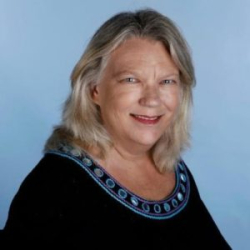The Miami-based fintech company, one of the region’s newer arrivals, has attracted a number of high-profile investors, from Shopify to Chamath Palihapitiya and Marc Benioff
Just over a year ago, Pipe launched the world’s first trading platform for recurring revenue. Today the Miami-based fintech company, one of the city’s new arrivals, announced it has raised $50 million in strategic equity funding to expand its global footprint.
The round was led by Next47 and Raptor Group, with a slew of high-profile investors participating. They include Shopify, HubSpot, Slack, Okta, Chamath Palihapitiya, Marc Benioff, Michael Dell’s MSD Capital, Republic, Alexis Ohanian and Joe Lonsdale.
In total, Pipe has raised $66 million in funding to grow its innovative alternative financing platform.
Clearing a path for companies to look beyond equity or debt financing as their only ways to raise funding, Pipe says it offers a new kind of two-sided marketplace that enables entrepreneurs to grow their business on their terms. By treating recurring revenue streams as an asset, Pipe allows companies to trade future recurring revenue into capital today for scaling, without debt or dilution. The other side of the marketplace is made up of institutional investors eager to purchase these recurring revenue-generating assets, which act similar to fixed-income products, and Pipe makes money from transaction fees on these trades.
Many of the round’s new investors had approached Pipe to form partnerships and the conversations quickly evolved, said co-founder and co-CEO Harry Hurst, an entrepreneur and investor who has helped build a number of startups. “We felt it made sense to have the broader ecosystem that powers growth-oriented companies join forces to invest together in the future of revenue as a tradable asset class,” he said.

Founded by Hurst, Josh Mangel and Zain Allarakhia, Pipe launched its beta in February 2020, just before COVID-19 became a major pandemic, and marketed itself to SaaS companies as an alternative to equity financing and the dilution it brings. As venture capital and traditional lending slowed initially, Pipe’s business took off and it launched publicly in June. Since those early days, Hurst said more than 3,000 companies of all sizes from around the globe have signed up for the innovative platform. Today, its customer base is not only SaaS companies, but also telecom companies, streaming services and direct-to consumer subscription businesses.
“Pipe is revolutionizing how companies access capital by empowering them to trade their most valuable asset: their underlying contracts. As an active investor in the recurring revenue space, we are incredibly impressed with how the Pipe platform changes the game for growing businesses by giving them dynamic access to a lower cost of capital,” said Matthew Cowan, General Partner of Next47, in a statement.
According to Pipe, the company has already achieved tradeable ARR on the platform of more than $1 billion, and in the first couple months of 2021 alone, tens of millions of dollars have been traded on the platform.
“Pipe is leveling the playing field for companies in the capital markets,” said Palihapitiya, founder and CEO of Social Capital. “Pipe has unlocked a multi-trillion dollar asset class – revenue.”
Pipe’s large round also represents one of the first announced by one of Miami’s new tech companies. It’s in a space – financial technology – that has also been a growing venture sector in South Florida.
Hurst and Michal Cieplinski, COO and chief legal officer, were part of the leading wave of entrepreneurs and investors mostly from California and New York choosing the Magic City as a place to live and build their companies. They moved to Miami from California in September 2020, and quickly set up the startup’s new base and first “Microhub” in Wynwood. For his new company, Hurst believes a series of small microhubs spread globally where team members could meet and collaborate will be the future in a post-COVID world.
Since then, Pipe has added a third team member in Miami, Chief of Staff Huston Collins, and Hurst said he thinks others could follow. Today, Pipe is a globally distributed company with 22 team members.
Hurst and Cieplinski told Refresh Miami that they considered several cities, including Austin. But factors winning them over included the city’s time zone and connectivity provided by MIA, of course the royal mayoral welcome, and the abundance of office space and co-working options in Miami, something they didn’t expect to find.
Now, six months in, Hurst said this week he is still bullish on his new home.
“The tech ecosystem is booming in Miami and I fall in love with the city more and more every day.”
Follow @ndahlberg on Twitter and email her at [email protected]




